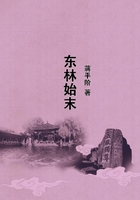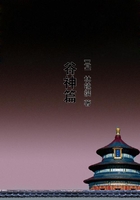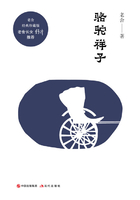Prop. LIX. To all the actions, whereto we are determined by emotion wherein the mind is passive; we can be determined without emotion by reason.
Proof.- To act rationally, is nothing else (III:iii. and III:Def.ii.) but to perform those actions, which follow from the necessity, of our nature {to persist} considered in itself alone. But pain is bad, in so far as it diminishes or checks the power of action (IV:xli.); wherefore we cannot by pain be determined to any action, which we should be unable to perform under the guidance of reason. Again, pleasure is bad only in so far as it hinders a man's capability for action (IV:xli., IV:xliii.); therefore to this extent we could not be determined by, it to any action, which we could not perform under the guidance of reason. Lastly, pleasure, in so far as it is good, is in harmony with reason (for it consists in the fact that a man's capability for action is increased or aided); nor is the mind passive therein, except in so far as a man's power of action is not increased to the extent of affording him an adequate conception of himself and his actions (III:iii., &Note).
Wherefore, if a man who is pleasurably affected be brought to such a state of perfection, that he gains an adequate conception of himself and his own actions, he will be equally, nay more, capable of those actions, to which he is determined by emotion wherein the mind is passive. But all emotions are attributable to pleasure, to pain, or to desire (Def. of the Emotions:iv. explanation); and desire (Def. of the Emotions:i.) is nothing else but the attempt to act; therefore, to all actions, &c. Q.E.D.
Another Proof.- A given action is called bad, in so far as it arises from one being affected by hatred or any evil emotion. But no action, considered in itself alone, is either good or bad (as we pointed out in the preface to Pt. IV.), one and the same action being sometimes good, sometimes bad; wherefore to the action which is sometimes bad, or arises from some evil emotion, we may be led by reason (IV:xix.). Q.E.D.
Note.- An example will put this point in a clearer light. The action of striking, in so far as it is considered physically, and in so far as we merely look to the fact that a man raises his arm, clenches his fist, and moves his whole arm violently downwards, is a virtue or excellence which is conceived as proper to the structure of the human body. If, then, a man, moved by anger or hatred, is led to clench his fist or to move his arm, this result takes place (as we showed in Pt.II.), because one and the same action can be associated with various mental images of things; therefore we may be determined to the performance of one and the same action by confused ideas, or by clear and distinct ideas. Hence it is evident that every desire which springs from emotion, wherein the mind is passive, would become useless, if men could be guided by reason. Let us now see why desire which arises from emotion, wherein the mind is passive, is called by us blind.
Prop. LX. Desire arising from a pleasure or pain, that is not attributable, to the whole body, but only to one or certain parts thereof, is without utility in respect to a man as a whole.
Proof.- Let it be assumed, for instance, that A, a part of a body, is so strengthened by some external cause, that it prevails over the remaining parts (IV:vi.). This part will not endeavour to do away with its own powers, in order that the other parts of the body may perform its office; for this it would be necessary for it to have a force or power of doing away with its own powers, which (III:vi.) is absurd. The said part, and, consequently, the mind also, will endeavour to preserve its condition.
Wherefore desire arising from a pleasure of the kind aforesaid has no utility in reference to a man as a whole. If it be assumed, on the other hand, that the part, A, be checked so that the remaining parts prevail, it may be proved in the same manner that desire arising from pain has no utility in respect to a man as a whole. Q.E.D.
Note.- As pleasure is generally (IV:xliv.Note) attributed to one part of the body, we generally desire to preserve our being with out taking into consideration our health as a whole: to which it may be added, that the desires which have most hold over us (IV:ix.) take account of the present and not of the future.
Prop. LXI. Desire which springs from reason cannot be excessive.
Proof.- Desire (Def. of the Emotions:i.) considered absolutely is the actual essence of man, in so far as it is conceived as in any way determined to a particular activity by some given modification of itself.
Hence desire, which arises from reason, that is (III:iii.), which is engendered in us in so far as we act, is the actual essence or nature of man, in so far as it is conceived as determined to such activities as are adequately conceived through man's essence only (III:Def.ii.). Now, if such desire could be excessive, human nature considered in itself alone would be able to exceed itself, or would be able to do more than it can, a manifest contradiction. Therefore, such desire cannot be excessive. Q.E.D.
Prop. LXII. In so far as the mind conceives a thing under the dictates of reason, it is affected equally, whether the idea be of a thing future, past, or present.
Proof.- Whatsoever the mind conceives under the guidance of reason, it conceives under the form of eternity or necessity (II:xliv.Coroll.ii.), and is therefore affected with the same certitude (II:xliii.&Note).
Wherefore, whether the thing be present, past, or future, the mind conceives it under the same necessity and is affected with the same certitude; and whether the idea be of something present, past, or future, it will in all cases be equally true (II:xli.); that is, it will always possess the same properties of an adequate idea (II:Def.iv.); therefore, in so far as the mind conceives things under the dictates of reason, it is affected in the same manner, whether the idea be of a thing future, past, or present. Q.E.D.


